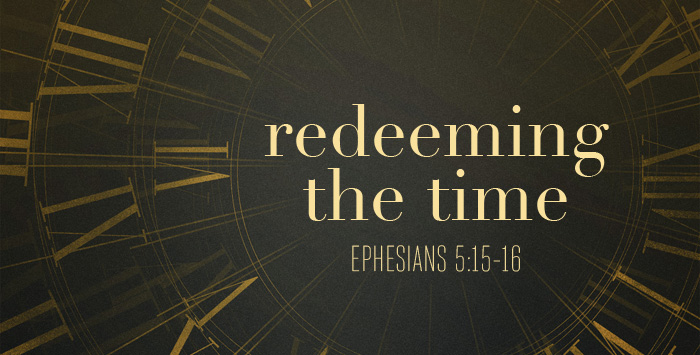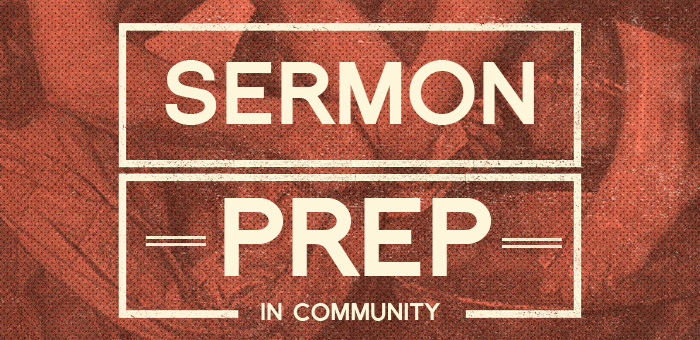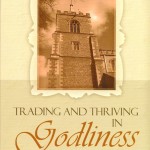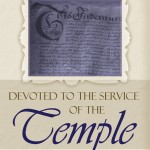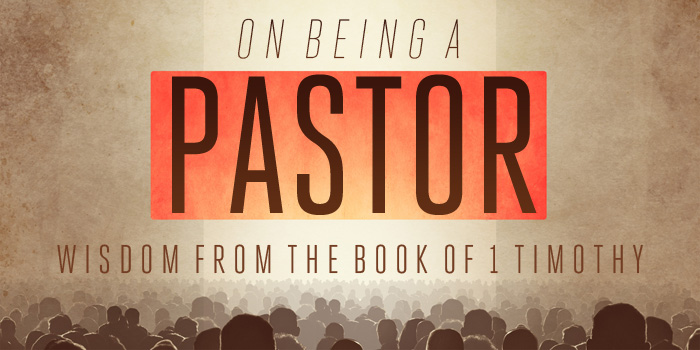“This thing all things devours;
Birds, beasts, trees, flowers;
Gnaws iron, bites steel;
Grinds hard stones to meal;
Slays king, ruins town,
And beats mountain down.”
So was the riddle Gollum put forth to little Bible Baggins in that famous scene under the mountain in The Hobbit. Bilbo accidentally stumbled on to the answer when, begging for reprieve, said, “Time!”
MAKING THE MOST OF IT
For many of us, time is usually a foe. We never seem to have enough of it; always rushing to and fro to complete tasks time fights against. Time silently steals strength from our bodies and memories from our minds.
But time is also a friend.
The apostle Paul knew this well. He told the Ephesians, “Look carefully then how you walk, not as unwise but as wise, making the best use of the time.” Each day consists of seconds, minutes, and hours waiting to be used. How will you redeem them? The Snake will tempt us to fritter them away, while the Spirit compels us to seize them for Christ. That battle rages in areas unseen as you walk through ordinary life.
Like so many things in Scripture, Paul’s exhortation to wielding time as a weapon is one that a pastor must model for his church. He needs to exemplify a holy detachment from worldly, lazy uses of time and take every second captive and make it obedient to Christ.
Yet, one of the deepest pitfalls for pastors on this issue is how easy it is for us to run amuck with our moments. This is uniquely true for those of us in smaller churches. I serve in a church with no office and two other staff members I see a couple times a week. I leave my house in the morning to labor throughout the day largely on my own. It is entirely possible for me to waste the entire day and no one would be the wiser for it. But this temptation is not peculiar to those of us on the tiny end of the ecclesiological pool. I’ve served in larger churches and know that, while more visible accountability is in place, wasting time is easy anywhere.
TRUTH ON TIME
What are we to do?
First, and foremost, we must arm our souls with Scripture. Truths like:
- “O Lord, make me know my end and what is the measure of my days; let me know how fleeting I am! Behold, you have made my days a few handbreadths, and my lifetime is as nothing before you. Surely all mankind stands as a mere breath!” – Psalm 39:4-5
- “Teach us to number our days that we may get a heart of wisdom.” – Psalm 90:12
- “What is your life? For you are a mist that appears for a little time and then vanishes.” – James 4:14
- “Look carefully then how you walk, not as unwise but as wise, making the best use of the time, because the days are evil.” – Ephesians 5:15-16
- “Walk in wisdom toward outsiders, making the best use of the time.” – Colossians 4:5
Loaded with truth and fueled by His Spirit we must walk through each day with an aim to assault the gates of hell with our time. In so doing we not only honor God, but put forth a model for our people worth emulation.
USING TIME FOR GOD’S GLORY
The next time you are tempted to idleness and frivolity with your time, consider the following five simple strategies.
Pray. I’ve often thought to myself, “I wish I had more time for prayer!” Yet, when I really look around at an ordinary day, moments for prayer abound. I’m just more likely to use the time on something else.
Read. Have a healthy dose of good books always on hand, so that wherever and whenever free minutes come your are ready to feed your mind and heart. Personally, I like to always have at least one Christian book, one non-fiction book, and one fiction book nearby. This is probably why I rarely go anywhere without a backpack.
Listen. Load your phone, mp3 player, or whatever else you use with a good mix of quality audio. Subscribe to a few good podcasts, download seminary lectures from iTunes U, or queue up a good audiobook. I’m a bit of a technological dinosaur, so it was only two weeks ago I discovered I could listen to the Bible on my iPhone through esvbible.org. What a joy and privilege to listen to God’s word anywhere I go!
Speak. By this I mean evangelism. If you find yourself at any point in the day with an hour of time and pastoral duties for the day complete, why not go somewhere to speak with non-Christians?
Sleep. I’m particularly thinking about late night hours. RC Sproul captured this point well in an old Tabletalk article where he said,
Several years ago I had an epiphany about time management. Though my life-long pattern had been to stay up late at night I realized that for me, the hours between 9–12 p.m. were not very productive. I reasoned that if I used those hours to sleep I might secure more time for more productive things. Since then my habit has been to retire between 8–9 p.m. when possible and rise at 4 a.m. This has effected a wonderful revolution for my schedule. The early hours of the day are a time free from distractions and interruptions, a marvelous time for study, writing, and prayer….
I know exactly hwat he means. I’ve often told people I’m useless after about 8:30pm, so I can do one of two things after the clock’s hands move past my tipping point: 1) mentally tune out and veg out on a TV show or movie, or 2) go to bed. Sleeping is, at least for me, the best us of that time. Going to bed early allows me to wake up earlier and maximize the morning for the glory of God.
SET THE PACE
We need pastors who are diligent and disciplined with their time. Pastors who slay the Serpent with how they use their time. Praise God for His grace to forgive our propensity to meander aimlessly with His moments. Lay hold of that grace for forgiveness and for power to use His time with new focus and joy.

